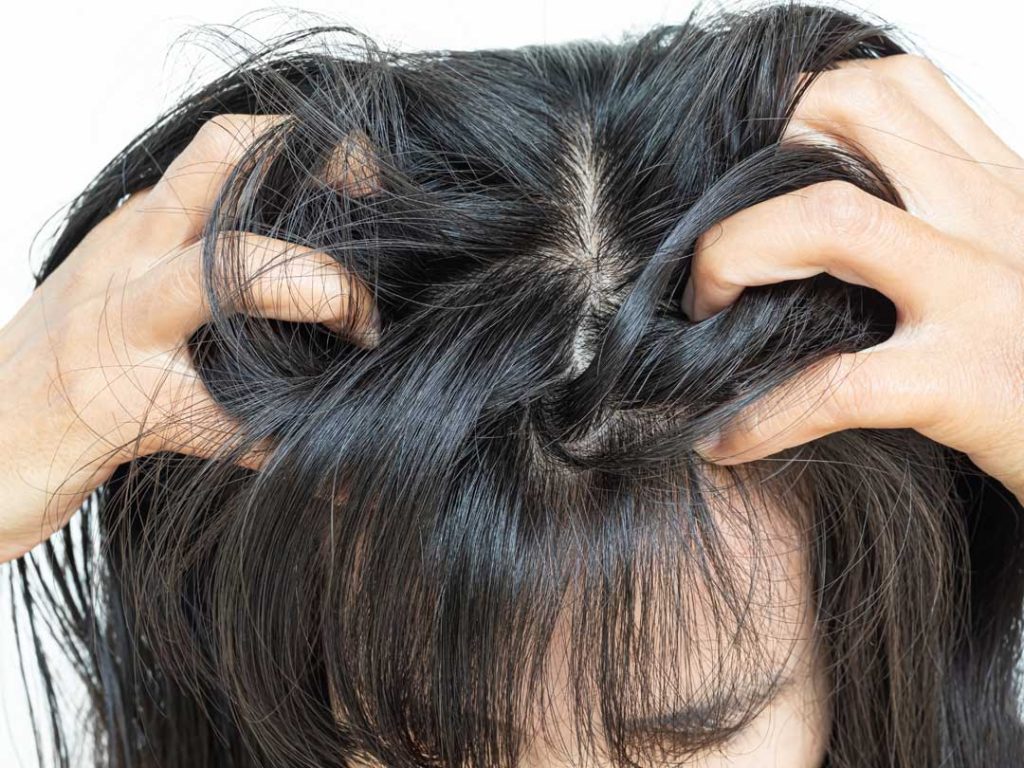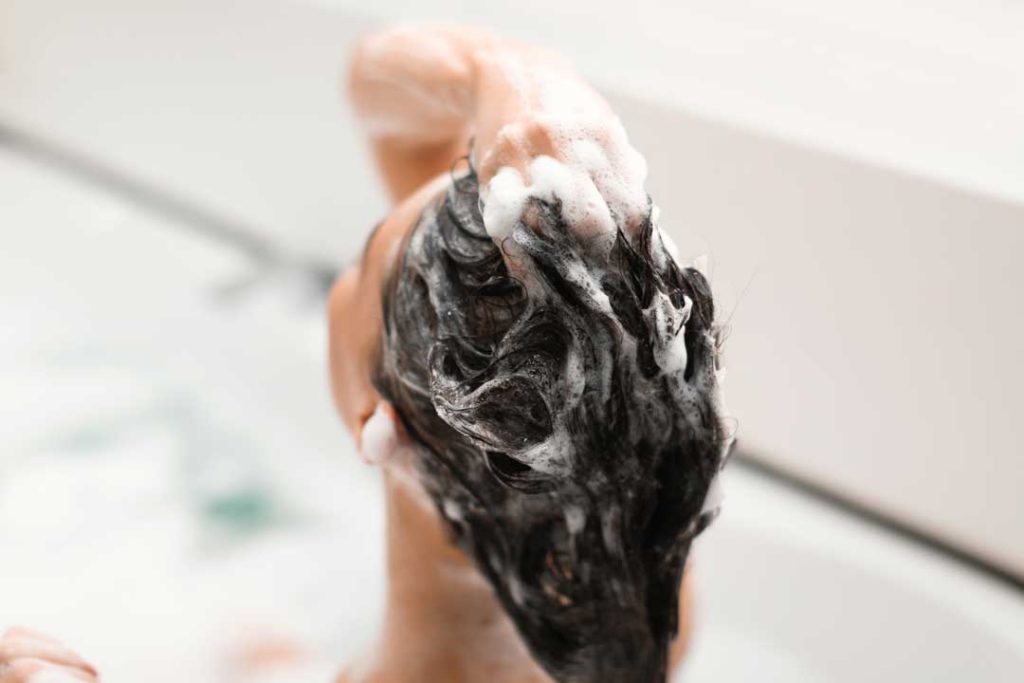Scalp infections and hair loss often go hand in hand—but with early treatment, you can stop the damage and protect your hair’s future.

Scalp infections are a common but sometimes overlooked cause of hair loss. Certain scalp infections can damage hair follicles and lead to noticeable thinning or bald patches. Conditions like ringworm, folliculitis, and yeast infections may not only cause discomfort but also weaken hair and make it easier for strands to fall out.
Treating scalp infections usually starts with antifungal or antibacterial products, depending on the type of infection. Many people also look for products such as men’s hair loss shampoo by Try Spartan, which is made to help protect hair follicles and encourage new growth. Cleaning and caring for the scalp helps reduce the risk of future problems.
Understanding how infections affect the scalp and learning about treatments can help someone take action early. Early care and the right treatment approach can improve scalp health and limit hair loss.
Scalp Infections and Hair Loss: Symptoms, Causes, and Treatments
If you’re noticing unusual thinning or bald patches, your scalp might be trying to tell you something. Scalp infections and hair loss are often connected, especially when inflammation or irritation damages hair follicles.
Conditions like ringworm, folliculitis, or yeast overgrowth can all affect scalp health. Knowing the scalp infection symptoms and starting treatment early may help prevent long-term damage and promote regrowth.
How Scalp Infections Cause Hair Loss
Scalp infections can damage hair follicles, leading to hair thinning or bald spots. Different infections act in different ways, but most cause some form of irritation or inflammation that weakens the hair or disrupts its growth.

Common Types of Scalp Infections
There are a few fungal and bacterial infections that often affect the scalp. Some of the most common include:
- Ringworm of the scalp (Tinea capitis): This fungus can cause round, scaly patches and patchy hair loss.
- Folliculitis: This is an infection or irritation of the hair follicles. It leads to red bumps and sometimes pus, which can cause the hair to break off or fall out.
- Yeast infections: An overgrowth of yeast can result in itching, flakiness, and sometimes hair loss if the scalp becomes inflamed.
- Impetigo: A bacterial infection that can form sores and crusts, which may damage the skin and hair follicles.
These infections can weaken the hair or damage the places where hair grows. That’s how hair loss often happens in these cases.
How Infections Disrupt Hair Growth
When bacteria or fungi get into the scalp, they cause irritation that makes the environment unhealthy for hair follicles.

Inflammation, which is the body’s natural response to infection, can destroy tissue around the follicle. This breaks the normal hair growth cycle. The hair may fall out too early or stop growing back as usual.
Some infections cause scars. If scarring happens, the hair loss may be long-lasting or even permanent in the affected areas. This permanent hair loss usually occurs if the infection is not treated early.
Allergies to substances used on the scalp, along with infection, can make the irritation worse, leading to more hair falling out.
Signs of Infection-Related Hair Loss
The first sign is often itchy, red, or sore skin on the scalp. People might also notice:
- Bald patches or areas where hair breaks off close to the skin.
- Scaly or flaky skin, sometimes with pus or small blisters.
- Thick crusts form on the scalp, which can be yellow or white.
- Shedding of hair more than usual when combing or washing.

If the infection continues, it may lead to visible bald spots or a general thinning of hair. Catching symptoms early and getting treated can help prevent larger areas of hair loss.
Treatment and Prevention of Scalp Infection-Induced Hair Loss
Treating scalp infections early can lower the risk of hair loss or help new hair regrow. Simple daily habits may also reduce the odds of infection and protect hair follicles over time.

Effective Medical Treatments
Doctors often use medicines to treat scalp infections that cause hair loss. Antifungal creams or shampoos are common for fungal infections. In some cases, oral antifungal pills are needed. If bacteria are involved, antibiotics may be used either as a cream or in pill form.
For infections like ringworm or folliculitis, medicated shampoos can help remove fungus or bacteria. If the infection is more severe, a doctor may prescribe stronger medicine or suggest special washes and ointments designed for the scalp.
Sometimes, topical steroids are used to reduce inflammation and itching. Fast action is important. Delaying treatment may lead to more hair loss or even permanent follicle damage. Always use the medicine exactly as prescribed.
Home Remedies and Care Tips
Proper scalp hygiene plays a big part in fighting and preventing infections. Washing hair regularly with gentle shampoo helps keep the scalp clean and dry. Avoid sharing towels, combs, or hats to prevent spreading germs or fungi.

If skin on the scalp is broken or has sores, keep the area clean and dry. Over-the-counter shampoos with ingredients like ketoconazole or selenium sulfide may help with mild fungal problems. Avoid scratching or picking to prevent worsening the infection.
Eating a balanced diet and lowering stress may help the body heal. Good handwashing habits and keeping hairbrushes clean also help reduce future infections.
When to Seek Professional Help
See a doctor if the scalp infection causes a lot of pain, redness, swelling, or pus. Call a medical provider if symptoms do not get better after using home remedies or store-bought treatments for a week or two.
Watch for sudden hair loss, large bald patches, or spreading sores. Some infections can get worse without prompt care. Early medical attention can reduce the risk of irreversible hair loss.

It is important to get checked if there are signs of fever or if the infection covers a large area. People with other health problems, like diabetes, should seek medical care quickly if they notice an infection.
Can Scalp Infections Cause Hair Loss? Here’s What You Should Know
Scalp infections can lead to hair loss if not addressed quickly. Early treatment may prevent damage to hair follicles and help hair regrow.
Common treatments include antifungal or antibiotic medications, depending on the cause. Good hygiene and regular hair care can also lower the chance of infections.
If hair loss happens with signs of infection like redness or sores, it’s best to speak with a healthcare provider for advice.

Scalp infections and hair loss don’t have to be permanent. With early detection, the right treatment for scalp infections, and proper hygiene, most people can recover both their scalp health and hair.
From medicated shampoos to antibiotics, solutions exist for every cause—just don’t ignore the signs. If you notice redness, flaking, or sudden shedding, speak with a professional and take action before it becomes long-term.

Jessi is the creative mind behind The Coffee Mom, a popular blog that combines parenting advice, travel tips, and a love for all things Disney. As a trusted Disney influencer and passionate storyteller, Jessi’s authentic insights and relatable content resonate with readers worldwide.



